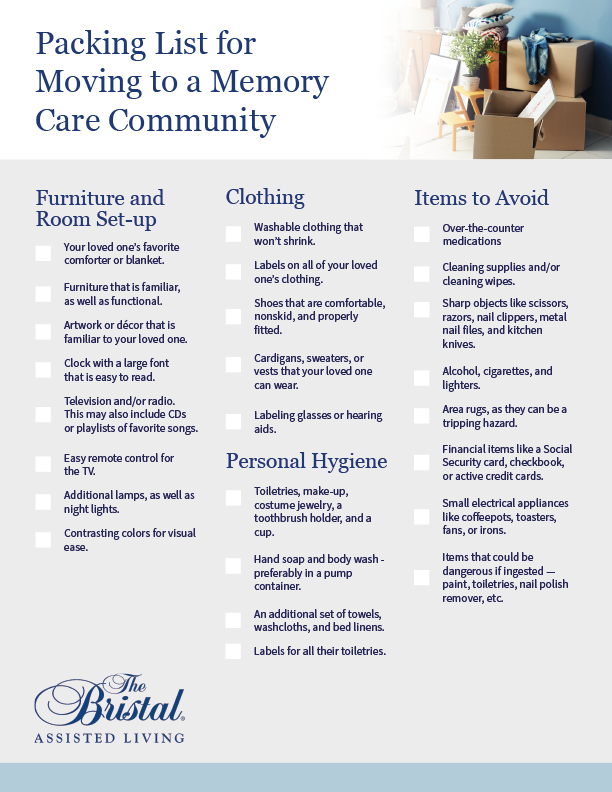Comprehensive Household Help Readily Available with Alzheimers Care Charlotte
Comprehensive Household Help Readily Available with Alzheimers Care Charlotte
Blog Article
Producing a Safe and Encouraging Setting for Alzheimer's Care
The development of a secure and helpful setting for people with Alzheimer's is critical in boosting their top quality of life. This includes not only physical adaptations within the home, such as lessening threats and integrating acquainted components, however additionally the execution of organized regimens and significant activities that cater to their cognitive needs. Understanding the emotional and psychological measurements of treatment can substantially impact their sense of security and connection. Exploring these diverse approaches can reveal essential insights right into effective caregiving techniques that might change the day-to-day experiences of both clients and caretakers.
Understanding Alzheimer's Requirements
Frequently, individuals with Alzheimer's illness display a variety of demands that call for customized methods to care. As the condition progresses, cognitive decrease materializes in numerous means, influencing memory, thinking, and also the capacity to perform daily activities. Caretakers need to identify these progressing requirements to provide appropriate support and make certain a better of life for those impacted.
One vital aspect of comprehending Alzheimer's needs is recognizing the value of regular and familiarity. People usually discover convenience in well-known patterns, which can decrease anxiety and complication. Caretakers need to make every effort to develop organized everyday timetables that include significant tasks lined up with the individual's abilities and passions.
Furthermore, efficient interaction is vital. Individuals with Alzheimer's may have a hard time to reveal themselves or comprehend intricate language. Caretakers must employ simple, clear language, use non-verbal cues, and method energetic paying attention to promote understanding and connection.
Finally, psychological and social needs can not be forgotten. Giving opportunities for social interaction and preserving connections can considerably boost psychological wellness. Caretakers should motivate engagement in community activities or family members gatherings, advertising a sense of belonging and objective. Understanding these diverse needs is crucial for creating a helpful care atmosphere.
Creating a Safe Home
Developing a safe home for people with Alzheimer's illness is important to reducing risks and promoting independence. Make certain that pathways are well-lit and clear, as proper illumination lowers disorientation and boosts mobility.
Including adaptive attributes is likewise vital. Install grab bars in bathrooms and near stairways, and take into consideration making use of non-slip floor coverings in damp areas. Additionally, utilizing contrasting shades for floors and walls can help in distinguishing areas, helping to mitigate confusion.
Knowledge is essential for individuals with Alzheimer's. Individualizing the atmosphere with acquainted things and pictures can enhance a sense of belonging and protection - Alzheimers Care Charlotte. It is additionally helpful to have an assigned area for everyday activities, such as reading or crafting, which can give structure to their day
Finally, applying a secure exterior space enables for safe expedition while getting in touch with nature. By thoughtfully making the home setting, caretakers can considerably enhance the lifestyle for individuals coping with Alzheimer's condition.
Enhancing Communication Skills

Non-verbal interaction, consisting of face expressions, motions, and touch, plays an essential function in conveying empathy and understanding. Preserving eye contact and a tranquil demeanor can enhance the comfort level of the individual, advertising a sense of safety and security.
Moreover, it is essential to exercise active listening. This includes being totally present, revealing persistence, and allowing the individual to share themselves without interruption. Repetition might be needed; caretakers ought to be prepared to revisit topics or concerns, as individuals with Alzheimer's may fight with memory recall.
Additionally, making use of aesthetic aids or hints, such as photographs or acquainted objects, can help with acknowledgment and interaction. Eventually, improving communication abilities has to do with constructing trust and developing an environment where individuals feel listened to, valued, and recognized, consequently improving their lifestyle.
Urging Social Interaction
Promoting meaningful social communications can considerably improve the wellness of individuals with Alzheimer's condition. Involving with others not just assists fight sensations of isolation yet additionally promotes cognitive feature and psychological health and wellness. Structured social tasks, such as team crafts, arts and games, or music treatment, create opportunities for homeowners to get in touch with peers and caregivers, which can bring about enhanced mood and reduced stress and anxiety.
Producing a welcoming environment that motivates socialization is important. This can be achieved by arranging communal spaces that assist in interaction, such as cozy seating locations or task rooms. Additionally, incorporating familiar and culturally appropriate tasks can trigger memories and motivate participation, allowing people with Alzheimer's to really feel more linked to their past experiences.
Moreover, caregivers need to be educated to identify and promote social engagement amongst residents. By focusing on social communication, we can dramatically enhance the lives of those living with Alzheimer's, fostering a sense of community and belonging.
Sustaining Caretaker Health

To sustain basics caretakers, organizations need to supply normal training and educational sources to improve their understanding of Alzheimer's disease and caregiving techniques. Offering access to break care solutions permits caregivers to take necessary breaks, reducing stress and exhaustion - Alzheimers Care Charlotte. In addition, promoting a neighborhood with support system can facilitate psychological sharing and the exchange of useful guidance among caretakers, producing a network of common assistance
Psychological health and wellness sources, such as counseling solutions, can likewise be crucial in addressing the psychological toll caregiving can take. By prioritizing caregiver wellness, we develop a more sustainable caregiving setting that not only benefits the caretakers themselves yet also enhances the total quality of care obtained by people with Alzheimer's. Eventually, supporting caretakers is a vital part in promoting a effective and thoughtful care setting.
Conclusion
Finally, the development of a supportive and risk-free setting for people with Alzheimer's is vital to improving their lifestyle. By prioritizing safety and security through thoughtful style, cultivating emotional well-being with acquainted aspects, and advertising involvement through structured regimens, caregivers can dramatically affect the overall experience of those affected by this condition. Sustaining caregiver wellness is critical, as it inevitably contributes to a much review more thoughtful and reliable care environment.
Repetition might be essential; caregivers must be prepared to revisit subjects or questions, as people with Alzheimer's may struggle with memory recall.

Report this page